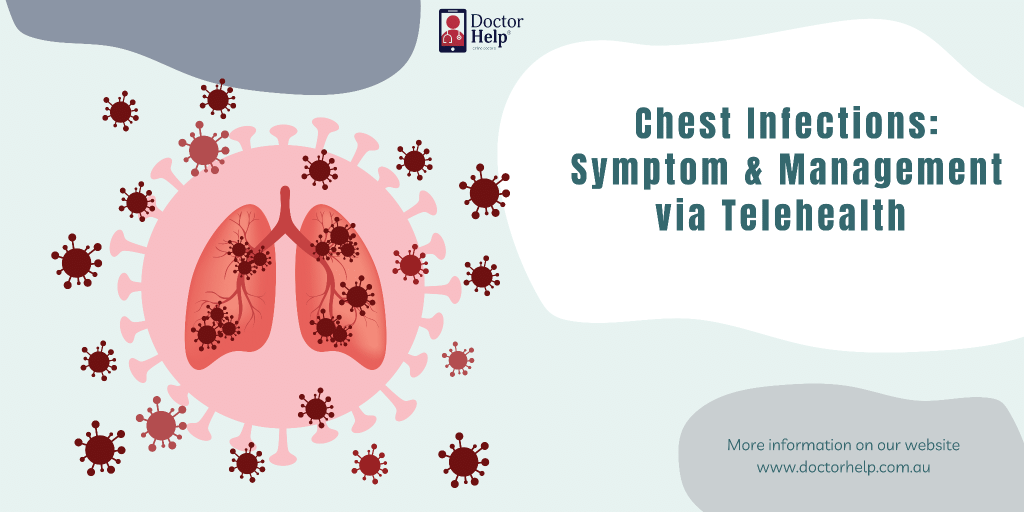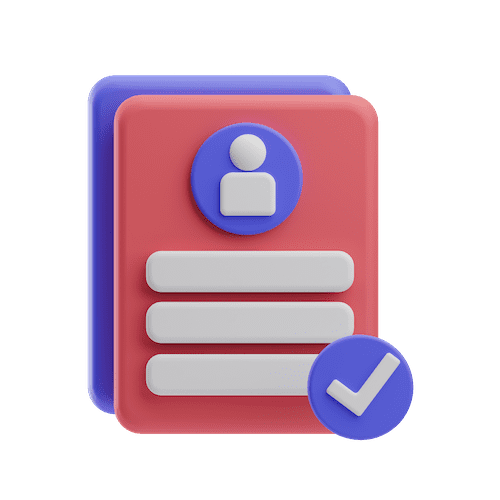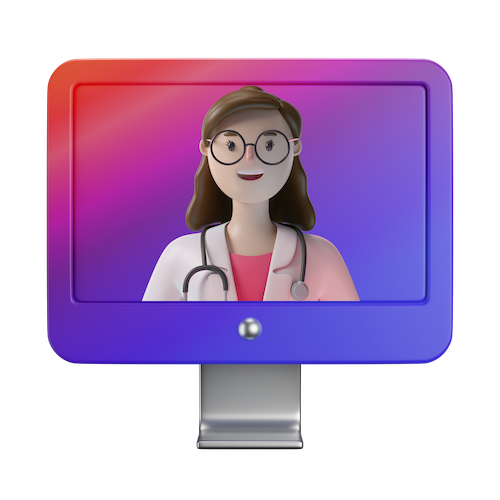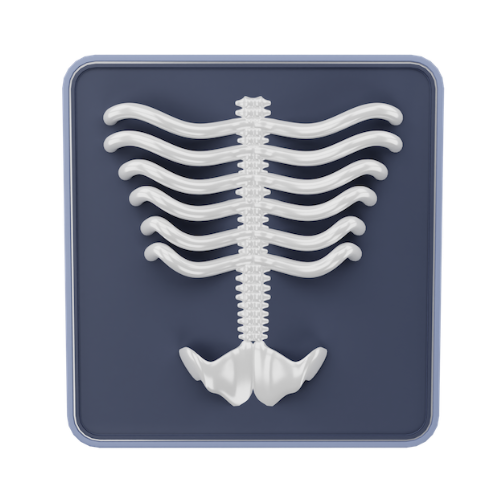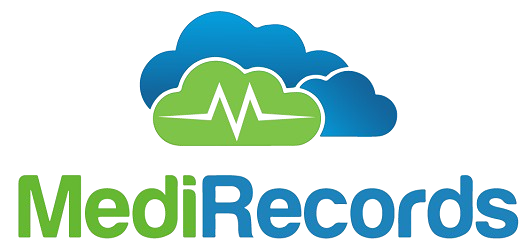Table of Contents
One of the most common health concerns that can affect individuals of all ages is chest infections. From mild to severe the different ranges of chest infractions are there depending on the underlying causes. It is very significant to understand the cause and know when and how to seek treatment for effective and rapid recovery. This article aims to look in-depth into chest infections, their symptoms and how telehealth can help in management.
Symptoms of Chest Infection
Chest infections are usually caused by bacteria and viruses. There are wide range of symptoms whereas intensity and duration might vary from individual to individual.
Key indicators are the following,
Continuous cough: one of the primary signs. The cough usually produces mucous which is clear, yellow, green and even blood-tinged.
Chest discomfort: From tight feeling to sharp pains while breathing or coughing.
Difficulty in Breathing: shortness of breath or laboured breathing can indicate a more severe chest infection.
Chills and Fever: A rise in the body temperature is a sign that the body is fighting off infections.
Fatigue: The feeling of drained or tiredness is common in chest infections
Noisy chest: audible sounds of wheezing or rattling can be heard while breathing
Causes of Chest Infections
Chest infections happen when harmful viruses, bacteria or fungi fetch their way into our lungs. These are the microbes that enter the body via the following means:
- Touch: By touching the contaminated surfaces and then the face can introduce microbes to the body
- Inhale: While breathing in the contaminated air with infection, if the droplets of the infected person’s cough or sneeze are accidentally inhaled
- Underlying medical issue: Individuals with chronic breathing issues or respiratory disorders are susceptible due to many factors including damaged lungs being able to get rid of mucous effectively and having damaged immune response.
Although many microorganisms can be the cause of chest infections, bacteria like Streptococcus pneumoniae and Haemophilus influenzae are usually implicated. Viruses such as rhinovirus, influenza, and COVID-19 can also cause pneumonia.
Home Care vs. Medical Consultation
It is not recommended to take any infection that lasts for a longer duration lightly. If we talk about UTRI (upper respiratory tract infection) is a condition that can be treated at home. Point to keep in mind is that the severity of symptoms in young fit adults is less than aged indivisuals and children.
Although, One must seek medical advice as prolonged chest infections can be caused by underlying medical conditions. It’s crucial to know the difference between situations that can be managed at home and those that require medical attention:
Care at Home: Telehealth consultation is the best for mild infections, such as upper respiratory tract infectionl. Take a leave from work and relax at home as per the online doctor’s advice.
Medical Consultation: If the symptoms for chest infections,(high fever and shortness of breath) are prolonged and getting severe with time, going to the emergency is recommended. Call 000 if you suffer from shortness of breath.
The Role of Telehealth in Managing Chest Infections
Telehealth services are considered vital tools especially during the COVID-19 pandemic, by issuing several key benefits considering the management of viral or bacterial infections:
Safety measures: Infections can spread easily when there are human interactions and in-person visits pose a risk of transmission. Telehealth offers safer alternatives, which reduces the potential exposure for healthcare practitioners and patients.
Primary Consultation: Through telehealth, patients can discuss their symptoms with the online doctor. This initial consultation helps them take the next steps whether recommending self-care or suggesting intensive treatment or in-person referral.
Online Prescription: As per the doctor’s advice, online prescriptions are issued after the online consultation.
Accessibility: Telehealth ensures that medical advice is on time for those who are in remote areas, aged or with some immobility. This eliminates the need to travel thus improving healthcare access.
Although telehealth is not recommended for emergencies or cases that require X-rays, or other tests might still necessitate an in-person visit.
However, the initial telehealth consultation can help assess the urgency and nature of any subsequent in-person assessments.
Identifying Requirements for Prescription Medications
To help determine the condition and primary care of the symptoms telehealth consultations are beneficial.
- High or Prolonged Fever: A fever that remains high or does not subside suggests a more severe infection.
- Breathing Difficulties: if you are struggling to breathe or feeling breathless, even when resting, is a red flag.
- Persistent Symptoms: If the symptoms do not show signs of improvement after a week, medical intervention might be needed.
- Unusual Symptoms: In rare cases, coughing up blood or experiencing sharp, stabbing chest pains requires immediate attention.
Chest infections are common but can pose a health risk if neglected. Having proper information is important for individuals to make decisions timely and ensure prompt initial care. The choice of antibiotic for chest infection usually depends on various factors, which include the suspected bacteria, the patient’s medical history, potential allergies, and concerns about antibiotic resistance. Telehealth plays a crucial role in managing these aspects by providing a convenient, safe, and accessible initial point of care.

